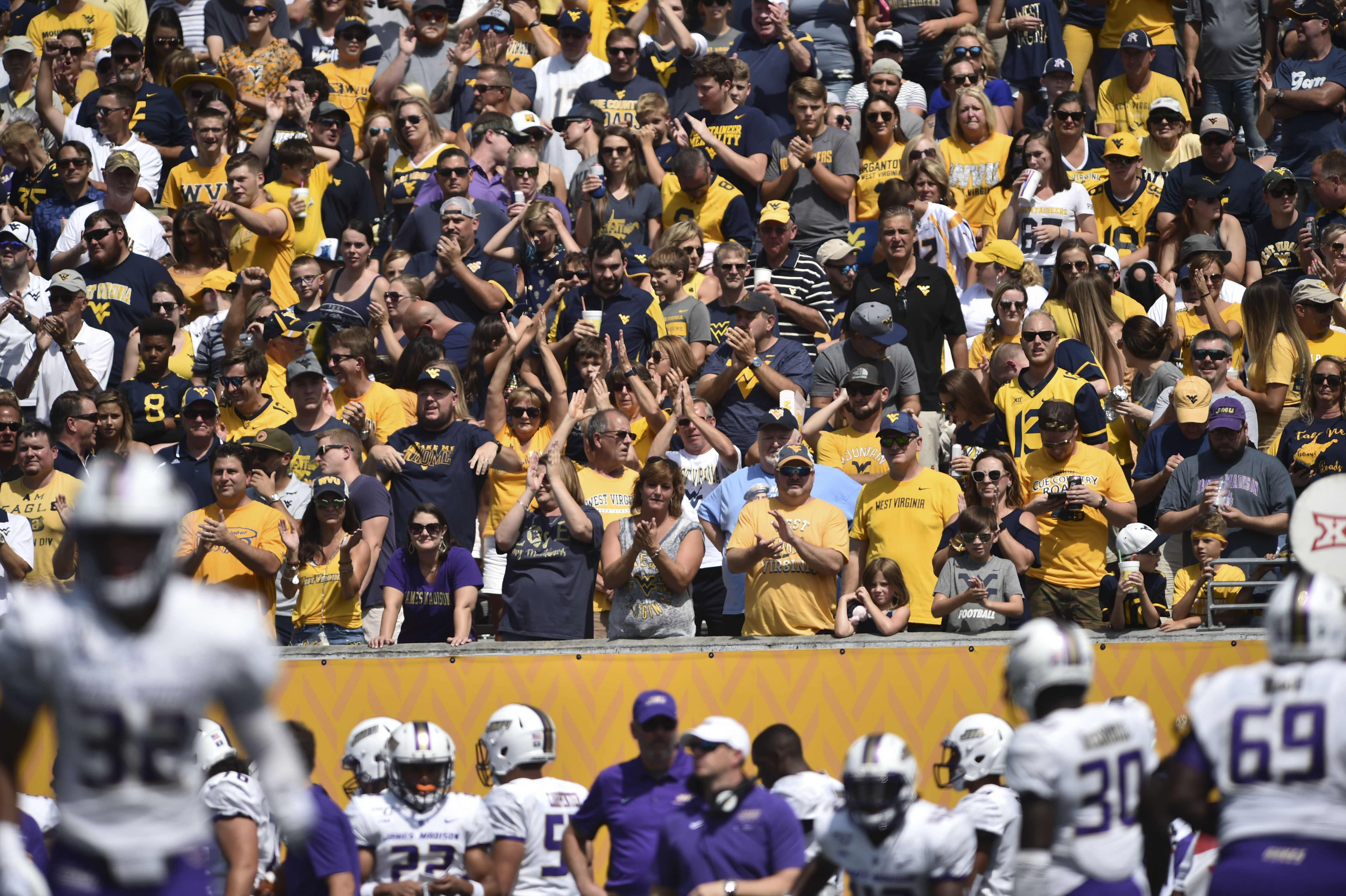MORGANTOWN, W.Va. — With the COVID-19 virus changing the landscape of the sports world every day, there is a step by step process for the West Virginia football team’s preparation for the college football season.
Right now, that is getting the student-athletes back on campus as safely as possible, and then taking measures to keep them safe once they are in Morgantown and working out at their respective facilities.
While many fans are curious about the status of attendance at Milan Puskar Stadium this fall – beginning Sept. 12 with the home opener against Eastern Kentucky – that won’t matter if players aren’t kept safe and the college football season is canceled, according to Clay Marsh, vice president and executive dean for Health Sciences at WVU.
“Like other large universities, we would love to have our athletics programs get back active again, including college football and our other sports teams,” Marsh said in an interview with The Dominion Post. “As we all know, though, there are many complexities to getting everyone back. COVID is a ubiquitous problem, and figuring out how to handle this for our student-athletes is where most of our effort’s been.
“As we envision the potential for starting athletic events and certainly we’ll move into a more mature discussion about other things, like the fan experience and the stadiums — things we all love — but first things first, getting students back safely is what’s most important.”
The football team was allowed to begin voluntary workouts June 15, and Marsh said coach Neal Brown and staff have been “terrific” in their efforts to create a safe environment for players —moving workout equipment outside and forcing everyone in the facility to wear a mask.
However, a major key is if a player tests positive, what precautions need to be taken in order to prevent potential spread. Many prominent college football programs reported positive cases — Mississippi State, Clemson, LSU, Kansas State, Iowa State, etc. — and LSU (30) and Clemson (23), both teams in last season’s national title game, reported a significant amount of positive cases.
WVU reported two positive cases with the most recent announced June 20. Each player is required to spend 14 days in self-isolation and the school said it will do contact tracing to see if anyone else came into contact with the positive players.
While a plan for other sports has yet to be released, Marsh has been in constant contact with WVU athletic director Shane Lyons and deputy athletic director Keli Zinn about the safest way to get students-athletes back. Sports returning, though, is just a subhead in the grand scheme of getting all WVU students back to campus come August, and what steps need to be taken before and after that happens.
“All of our coaches, from Neal Brown, to Bob Huggins, to Nikki Izzo-Brown, to Jon Hammond, the whole group of coaches, really do understand that the student-athletes are students and young people, and we all want to help them get back to the place where we can enjoy college sports,” Marsh said. “But it’s our primary duty to make sure we’re protecting these young people. What coach Brown is doing, as far as adopting to this new world of COVID, he’s really starting to focus on educating our student-athletes. He’s setting a really important bar for all of us at the university how to change the culture and belief-systems because for a lot of people, especially young people, I think they feel, ‘COVID, no big deal. We’ll be fine, this is a hoax, it’s fake. I’m young, I’ll be fine.’
“While most, yeah, you’ll probably be OK, that’s not true for everybody. If we want to have a college football season, a college soccer season or college basketball, all these other things we love, we have to No. 1, help those student-athletes, staff and others who work there be safe and stay healthy, and No. 2, provide a safe fan experience. If we can’t provide a safe environment for players, then there is no fan experience.”
Tweet @SeanManning_DP




